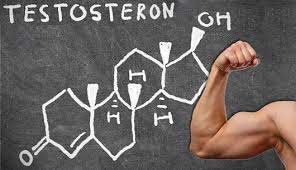How to Increase Testosterone Hormone in Men | Personal Trainer For Health Amsterdam
How do you increase testosterone hormone in men? This is a question many men ask themselves, especially after the age of 40. After this age, testosterone levels in men drop about 1% annually. This can lead to less energy, muscle loss and lower libido. Fortunately, there are several ways to increase testosterone hormone in men naturally. At Personal Trainer For Health in Amsterdam we help you do this with customized training, nutrition and advice.
Strength Training: Increase The Testosterone Hormone In Men
One of the most effective ways to increase testosterone hormone in men is strength training. Exercises such as squats, deadlifts and bench press stimulate testosterone production. At Personal Trainer For Health, we help you train the right way. Our focus is on compound exercises, which target multiple muscle groups at once and have the greatest impact on your hormone levels.
Sleep and Nutrition: Essential For High Testosterone Levels
Adequate sleep and healthy diet are crucial for increasing testosterone hormone in men. With sleep deprivation, your testosterone drops significantly. Therefore, at Personal Trainer For Health, we advise on how to optimize your sleep pattern. In addition, food and nutrients, such as protein, zinc and magnesium, play an important role. Eat foods such as eggs, nuts, meat and seeds for naturally elevated testosterone levels.
Stress Reduction For More Testosterone
Prolonged stress increases cortisol levels, which interferes with testosterone production. At Personal Trainer For Health we help you reduce stress through breathing exercises, meditation and relaxation techniques. Less stress means better testosterone production, which helps you feel more energetic and stronger. 
Personal Training With Personal Trainer For Health: How Do You Increase Testosterone Hormone In Men?
At Personal Trainer For Health in Amsterdam, we offer a holistic approach to increasing testosterone hormone in men. We combine strength training, nutrition, sleep optimization and stress management to improve your testosterone levels naturally. Our personal trainers guide you step by step to a better hormonal balance, so you feel full of energy again.
Want to know how to increase testosterone hormone in men? Then contact us for a personal intake!